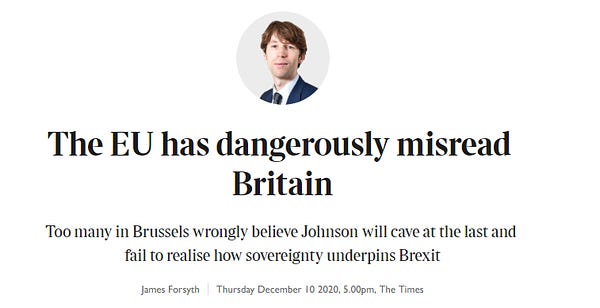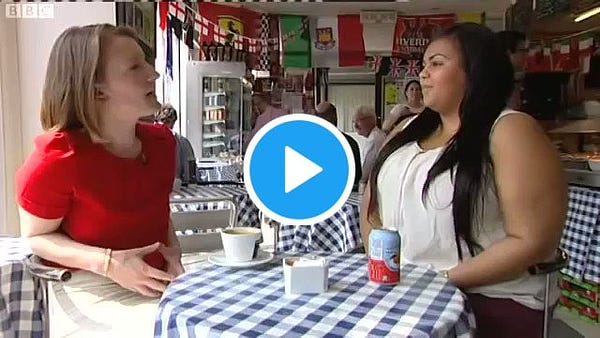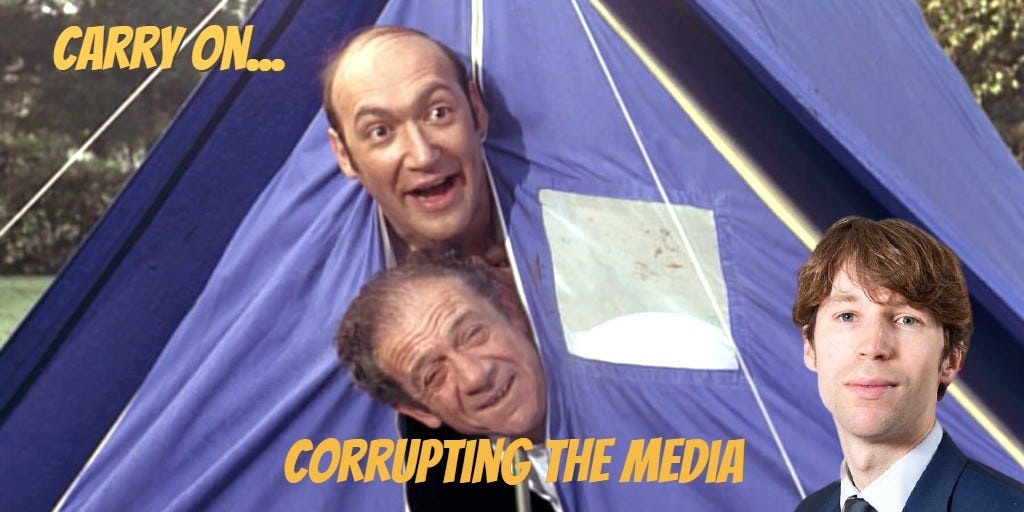“How do I know what Boris is thinking? I asked my wife...” British political journalists and the politicians they report on play out a corrupt soap opera
At least Coronation Street has a few relatable characters...
I started writing this newsletter edition on the day Barbara Windsor death was announced. She was 83 and had been famous for 69% of her life. Her first screen appearance was as one of the schoolgirls in 1954’s The Belles of St. Trinians when she was a 17-year-old student, but she came to real prominence in 1963, aged 26, with a BAFTA nomination for her role in Joan Littlewood’s Sparrows Can’t Sing.
For the 57 years that Barbara Windsor was a star — whether as the tit-covering, perma-giggling Babs Windsor of the Carry On films or the hatchet-faced matriarch of the Queen Vic, Peggy Mitchell, in Eastenders — we knew a remarkable amount about the soap opera of her real-life and the relationships of the characters she played.
We knew she was far too pally with and forgiving of gangsters and that she adored Kenneth Williams so much that she once took him with her and her new husband on a honeymoon. What Barbara Windsor thought and why she thought it was not a mystery; the nature of celebrity is that we end up knowing a great deal about the actors, musicians, writers and other assorted characters of fame.
But when it comes to politicians, the journalists who write about them, and the assorted think-tank wankers, policy wonkers and other grotesqueries that pirouette through British politics the interconnections are often kept oblique. British politics and the political press that reports on the court intrigue are as cosy as Albert Square but the players write their own scripts and seldom offer up kitchen sink realism.


That’s why James Forsyth, political editor of The Spectator — the magazine which used to be edited by the Prime Minister — writes columns about that Prime Minister while his wife, Allegra Stratton, works as the PM’s official spokesman, and his best man — a school friend, and godfather to his children — is Chancellor of the Exchequer. These connections are known to those within the bubble but never — as would be the case in US journalism — explicitly declared under the author’s byline.
Elsewhere in the media, Amelia Gentleman writes unquestionably fine investigative pieces about the horrors perpetrated by this government — notably the Windrush Scandal — while being married to… the Prime Minister’s brother and former minister, Jo Johnson. The younger Johnson was elevated to the House of Lords, becoming Baron Johson of Marylebone in October 2020. It’s the kind of wild nepotistic favouring of the leader’s family that we would titter at if it happened in one of the -stans. How long before calls for a giant golden statue of Boris Johnson with his dog Dilyn?
Chin-stoking murmuring moderates say, “But we shouldn’t judge people by who they're married to… blah blah sins of the fathers blah blah.” I’d write out what they say more thoroughly but I usually stop listening. One of the many problems with that argument is that in most relationships one partner talks to the other and, in the before times when we were allowed to socialise, they tend to share overlapping social circles.
It is ludicrous for James Forsyth, whose wife works for Boris Johnson, whose best friend is the Chancellor, and who dines on occasion at Chequers, to write about the Prime Minister as if he is a distant potentate who he analyses with cold detachment. They’re pals. To make things even more knotty, Forsyth’s colleague Mary Wakefield is married to the Prime Minister’s recently departed senior advisor Dominic Cummings, whose defenestration was, it’s suggested, partly instigated by Allegra Stratton.


I have no doubt that, if I were for some bizarre reason to be in a position to discuss these incestuous circle jerks with Forsyth or Stratton, they would give me some flim-flam about “keeping work and home separate” or “having Chinese Walls to keep information secret.” And I'd find those excuses and explanations about as convincing as Matt Hancock squeezing out a solitary tear for the close-up. There’s a reason these people get written up as “power couples” — they consolidate power from two spheres (politics and the media) in a single relationship.
The way journalists who are friends or even in relationships with politicians pretend to have simply stumbled upon inside information about goings-on in Westminster reminds me of Bill Hicks’ routine on selling weapons to Iraq:
You know during the Persian Gulf war those intelligence reports would come out:
“Iraq: incredible weapons – incredible weapons.”
“How do you know that?
“Uh, well… We looked at the receipts. But as soon as that cheque clears, we’re going in. What time’s the bank open? 8? We’re going in at 9. We’re going in for God and country and democracy and here’s a foetus and he’s a Hitler. Whatever you fucking need, let’s go. Get motivated behind this, let’s go!”
James Forsyth doesn’t need to check the receipts. He can just ask his wife.
Why does this matter? Because it’s so fundamentally fucking dishonest. Journalists who went to the same school as the people they report on, who live with them, drink with them, dine with them, ask them to be godparents to their children, and chuckle away at how the ‘civilians’ don’t understand the reality of politics are telling our national story. It is insiders who feint that they are ‘analysts’ like Forsyth who hold forth in newspapers columns and on the well-padded sofas of the Sunday shows.
I’ve written before about how most British political discourse is kayfabe — the professional wrestling term for portraying events within the industry as real, a collective deception for entertainment purposes that denies that anything is staged or worked. That’s fine for professional wrestling. That’s why they call it “sports entertainment” — you need to be incredibly fit to be a wrestler but you also know who’s going to win the match before the bell rings.
Keeping kayfabe is a huge problem for politics though. We are presented with politicians and journalists who we’re meant to believe are on opposite sides and we watch them swing at each other on screen but in the green room? They’re chummy.
Anyone who comes into the system and talks about the fakery openly is dealt with in one of two ways: They’re either brought into the tent and rewarded handsomely for shutting the fuck up or they refuse to shut up and they’re booted out of the tent, forced onto the fringes so everyone in the show can mutter that they were a kook who just couldn’t hack it in the ‘real’ world of politics and media.
If political editors and columnists were forced to include declarations of interest at the top or bottom of their published work, a great deal of their power would suddenly dissipate. They’d no longer be able to kid on that they were offering analytical precision when it was apparent that their wife was on the PM’s payroll or their brother was earning his bones in the policy unit. So that will never happen. We will continue to be served up shit and told it’s a fine chocolate mousse.



